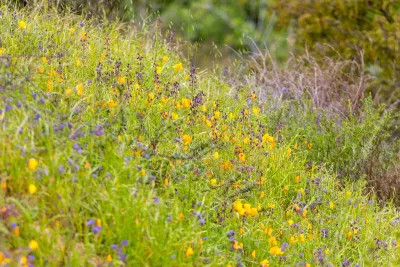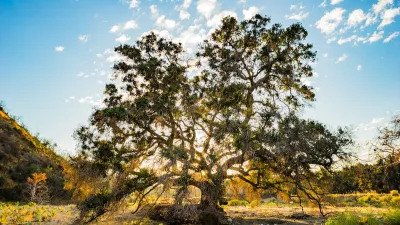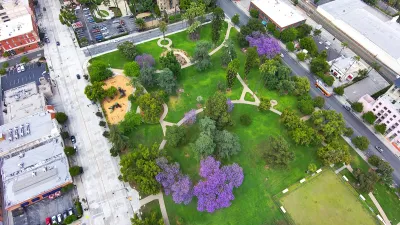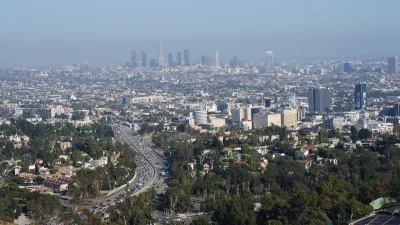TreePeople’s 4th Annual Urban Soil Symposium explored how climate gardening, soil health, and collaborative land management strategies can enhance urban resilience in the face of climate change.

The 4th Annual Los Angeles Urban Soil Symposium, hosted by TreePeople on March 7, 2025, brought together over 130 environmental practitioners to explore how landscapes can be reimagined in the face of climate change. Centered on the theme of Climate Gardening, the symposium examined the intersection of ecology, community, and land management. Discussions focused on how native plants, fungi, and green infrastructure can build resilience, particularly in areas impacted by events like the recent LA fires.
The event emphasized collaboration over conventional presentations, fostering connections between researchers, policymakers, and nonprofit leaders. Attendees explored TreePeople’s urban soils research and viewed informative posters from a variety of contributors. Examples of presentations included UCLA’s Kirsten Schwarz on democratizing soil testing post-wildfires and TreePeople’s own team advocating for circular soil systems that repurpose construction sediment into healthy, usable soil.
Beyond the science, the symposium encouraged attendees to reflect on their personal and philosophical approaches to land stewardship. An interactive art installation, The Mosaic Machine, prompted participants to consider how traditional, modern, ecological, or agrarian landscaping choices affect local watersheds. The momentum and ideas sparked at this year’s symposium suggest a promising path forward—where Climate Gardening helps reshape LA’s urban fabric into one that’s greener, healthier, and more adaptive to the changing climate.
FULL STORY: 4th Annual Urban Soil Symposium Digs Into Climate Gardening

Alabama: Trump Terminates Settlements for Black Communities Harmed By Raw Sewage
Trump deemed the landmark civil rights agreement “illegal DEI and environmental justice policy.”

Planetizen Federal Action Tracker
A weekly monitor of how Trump’s orders and actions are impacting planners and planning in America.

The 120 Year Old Tiny Home Villages That Sheltered San Francisco’s Earthquake Refugees
More than a century ago, San Francisco mobilized to house thousands of residents displaced by the 1906 earthquake. Could their strategy offer a model for the present?

In Both Crashes and Crime, Public Transportation is Far Safer than Driving
Contrary to popular assumptions, public transportation has far lower crash and crime rates than automobile travel. For safer communities, improve and encourage transit travel.

Report: Zoning Reforms Should Complement Nashville’s Ambitious Transit Plan
Without reform, restrictive zoning codes will limit the impact of the city’s planned transit expansion and could exclude some of the residents who depend on transit the most.

Judge Orders Release of Frozen IRA, IIJA Funding
The decision is a victory for environmental groups who charged that freezing funds for critical infrastructure and disaster response programs caused “real and irreparable harm” to communities.
Urban Design for Planners 1: Software Tools
This six-course series explores essential urban design concepts using open source software and equips planners with the tools they need to participate fully in the urban design process.
Planning for Universal Design
Learn the tools for implementing Universal Design in planning regulations.
Clanton & Associates, Inc.
Jessamine County Fiscal Court
Institute for Housing and Urban Development Studies (IHS)
City of Grandview
Harvard GSD Executive Education
Toledo-Lucas County Plan Commissions
Salt Lake City
NYU Wagner Graduate School of Public Service





























